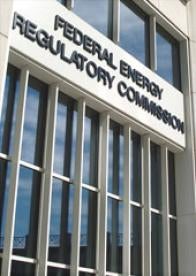In a May 23 opinion, the U.S. Court of Appeals for the D.C. Circuit in Electric Power Supply Association v. FERC found that FERC has no jurisdiction to establish rules for providing compensation to retail customers that reduce their demand in organized wholesale electricity markets. Over the past decade, demand response has been a fast-growing resource in these markets.
The principal task of any electric grid operator is to assure that electricity supply and demand are in balance at all times. This balance can be achieved by changing the level of generation or the level of customer demand, or both. The organized wholesale electricity markets run by RTOs and ISOs balance their systems through auction markets where generators offer to provide energy for a price, large customers or customer aggregators offer to decrease their demand for a price, and the system is balanced by the lowest-cost combination of both supply and demand resources.
In 2011, FERC issued Order No. 745 requiring that the demand response offers that clear the market receive the same market price as the generator offers that clear. Several parties petitioned the court to overturn FERC’s rule, arguing in part that FERC exceeded its jurisdiction in setting the price for demand response because it interfered with the states’ exclusive jurisdiction to regulate retail markets. Petitioners also argued that requiring that demand response resources receive the market price overcompensates them compared to generators and is thus unjust and discriminatory; customers avoid paying the retail rate for their reduced consumption and thus get a double payment by also receiving the full market price for the same reduction.
In a 2-1 decision, Judges Brown and Silberman of the D.C. Circuit agreed with the petitioners that FERC exceeded its authority under the Federal Power Act (“FPA”). Under established Supreme Court precedents, the standard of review the court is to apply to address FERC’s claim of authority is whether the FPA’s statutory text forecloses the agency’s assertion of authority. If the statute is silent or ambiguous, the court must defer to the agency’s reasonable construction of the statute.
Under section 201(b) of the FPA, FERC has jurisdiction over transmission and wholesale sales of electric energy in interstate commerce but not over “any other sale of electric energy.” As observed by the court, FERC’s jurisdiction over the sale of electricity has been specifically confined to the wholesale market. That said, the court notes that FERC acknowledged that demand response is not a wholesale sale. Instead, FERC hung its claim of jurisdiction on its mandate under sections 205 and 206 of the FPA to ensure that rules and regulations “affecting” wholesale rates are just and reasonable. The court agreed that demand response compensation affects the wholesale market, but concluded that under section 201 of the FPA this rationale could extend only to matters which are not subject to regulation by the states. The court observed that the states have the exclusive authority to regulate the retail market. According to the court, demand response is part of the retail market — it involves retail customers, their decisions to purchase at retail, and levels of retail electricity consumption — and by ordering an ISO or RTO to compensate a consumer for reducing its demand, FERC is changing the retail rate and thus directly and unlawfully regulating the retail market. The court also found Order No. 745’s pricing provisions arbitrary and capricious because FERC did not properly consider dissenting Commissioner Moeller’s and petitioners’ arguments regarding unjust and discriminatory rates.
In his dissent, Judge Edwards found section 201 of the FPA ambiguous on the issue of FERC jurisdiction over demand response. He reasoned that while section 201 gives FERC authority over wholesale sales and not “any other sale of electric energy,” demand response is not a “sale,” retail or wholesale, and thus this section says nothing about FERC’s power to review demand response rates in wholesale markets. He also notes that, in an earlier decision, the court limited FERC’s authority to review rules and practices affecting wholesale rates to matters that directly affect the rate or are closely related to the rate. Judge Edwards concluded that demand response is such a matter because it has a direct effect on wholesale rates. Accordingly, he would defer to FERC’s reasonable interpretation of the statute. Judge Edwards also found that FERC adequately explained its reasoning in support of the level of compensation for demand response and noted that FERC generally does not examine each of the costs of the individual resources participating in the organized wholesale electricity markets.
While the court’s decision in this case is subject to rehearing and possible further appeal, it raises a number of issues:
-
What is the scope of the opinion? Does FERC have authority remaining over demand response in wholesale electricity markets?
-
Order No. 745 addressed the pricing of demand response in energy balancing markets. Does the decision also apply to demand response participation in capacity and ancillary services markets? FERC has already received a complaint, based on the court’s reasoning, to remove provisions of the PJM Interconnection tariff that allow demand response resources to be suppliers to the wholesale capacity market, and to void the results of PJM’s recent auction for capacity in which demand resources cleared the market.
-
Will demand response providers be required to refund revenues received from RTO and ISO energy markets? Does FERC have the authority to require such refunds?
-
Are current and past FERC enforcement actions against demand response providers in energy markets void or still valid?
-
What will be the impact of the decision on development of demand response resources? FERC issued Order No. 745 to incentivize the entry of those resources because compensation was inadequate. Will the states step in to incentivize demand response resources?




 i
i

